Intro
Discover a comprehensive Carbohydrate Foods List, featuring starches, fibers, and sugars. Learn about whole grains, fruits, and vegetables rich in carbs, and understand their nutritional benefits and healthy eating options.
Carbohydrates are one of the primary sources of energy for the human body. They are an essential part of a balanced diet and come in various forms, including sugars, starches, and fibers. Carbohydrate foods are abundant and can be found in a wide range of natural and processed products. Understanding the importance of carbohydrates and knowing which foods are rich in them can help individuals make informed dietary choices.
The human body relies heavily on carbohydrates to function properly. They are broken down into glucose, which is then used by the body's cells to produce energy. Without adequate carbohydrate intake, the body may start to break down muscle tissue and fat for energy, leading to fatigue, weakness, and other health issues. Furthermore, carbohydrates play a crucial role in maintaining healthy digestion, promoting satiety, and supporting the growth and repair of body tissues.
A well-balanced diet that includes a variety of carbohydrate-rich foods can provide numerous health benefits. Carbohydrates are rich in essential vitamins, minerals, and antioxidants that help protect the body against chronic diseases, such as heart disease, diabetes, and certain types of cancer. Additionally, a diet rich in whole, unprocessed carbohydrate sources can help support healthy weight management, improve blood sugar control, and promote overall well-being.
Types of Carbohydrate Foods
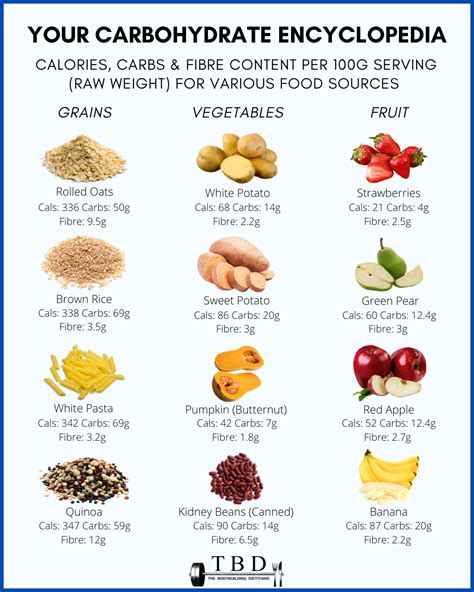
Carbohydrate foods can be broadly classified into two main categories: simple carbohydrates and complex carbohydrates. Simple carbohydrates, also known as sugars, are quickly digested and absorbed by the body, causing a rapid increase in blood sugar levels. Examples of simple carbohydrates include table sugar, honey, maple syrup, and fruit juices. Complex carbohydrates, on the other hand, are slower to digest and provide a more sustained release of energy. They are found in whole, unprocessed foods such as grains, legumes, fruits, and vegetables.
Grains and Cereals
Grains and cereals are some of the richest sources of carbohydrates. They include foods such as bread, pasta, rice, quinoa, and oats. Whole grains, in particular, are rich in fiber, vitamins, and minerals, making them a nutritious and healthy choice. Some examples of carbohydrate-rich grains and cereals include: * Brown rice: 1 cup cooked = 45 grams of carbohydrates * Quinoa: 1 cup cooked = 40 grams of carbohydrates * Whole wheat bread: 1 slice = 15 grams of carbohydrates * Oats: 1 cup cooked = 30 grams of carbohydratesFruits and Vegetables
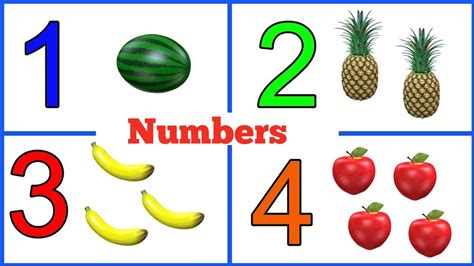
Fruits and vegetables are not only rich in carbohydrates but also packed with essential vitamins, minerals, and antioxidants. They are low in calories and high in fiber, making them an excellent choice for those looking to manage their weight or improve their overall health. Some examples of carbohydrate-rich fruits and vegetables include:
- Bananas: 1 medium = 30 grams of carbohydrates
- Apples: 1 medium = 25 grams of carbohydrates
- Carrots: 1 cup cooked = 20 grams of carbohydrates
- Sweet potatoes: 1 medium = 40 grams of carbohydrates
Legumes and Beans
Legumes and beans are rich in complex carbohydrates, fiber, and protein, making them an excellent choice for those looking to manage their blood sugar levels or improve their overall health. Some examples of carbohydrate-rich legumes and beans include: * Lentils: 1 cup cooked = 40 grams of carbohydrates * Chickpeas: 1 cup cooked = 45 grams of carbohydrates * Black beans: 1 cup cooked = 40 grams of carbohydrates * Kidney beans: 1 cup cooked = 40 grams of carbohydratesDairy Products and Alternatives
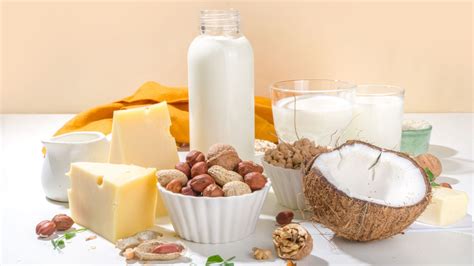
Dairy products and alternatives, such as milk, yogurt, and cheese, contain carbohydrates in the form of lactose, a naturally occurring sugar. Some examples of carbohydrate-rich dairy products and alternatives include:
- Milk: 1 cup = 20 grams of carbohydrates
- Yogurt: 1 cup = 30 grams of carbohydrates
- Cheese: 1 ounce = 5 grams of carbohydrates
- Soy milk: 1 cup = 20 grams of carbohydrates
Nutrition and Health Benefits
A diet rich in carbohydrate foods can provide numerous health benefits, including: * Energy production: Carbohydrates are the body's primary source of energy. * Weight management: Whole, unprocessed carbohydrate sources can help support healthy weight management. * Blood sugar control: Complex carbohydrates can help regulate blood sugar levels. * Healthy digestion: Fiber-rich carbohydrate sources can promote healthy digestion and prevent constipation. * Reduced risk of chronic diseases: A diet rich in whole, unprocessed carbohydrate sources can help reduce the risk of heart disease, diabetes, and certain types of cancer.Carbohydrate Food List
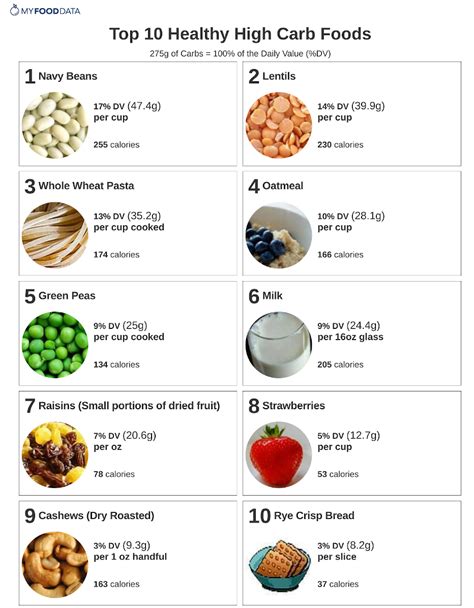
Here is a comprehensive list of carbohydrate-rich foods:
- Grains: bread, pasta, rice, quinoa, oats
- Fruits: bananas, apples, oranges, grapes, berries
- Vegetables: carrots, sweet potatoes, corn, peas, broccoli
- Legumes: lentils, chickpeas, black beans, kidney beans, soybeans
- Dairy products: milk, yogurt, cheese, soy milk, almond milk
- Snacks: crackers, chips, cookies, cakes, pastries
Low-Carbohydrate Foods
Some foods are naturally low in carbohydrates, making them a good choice for those looking to manage their blood sugar levels or follow a low-carb diet. Examples of low-carbohydrate foods include: * Meat: beef, pork, lamb, chicken, fish * Poultry: chicken, turkey, duck, goose * Eggs * Tofu and other soy products * Vegetables: leafy greens, broccoli, cauliflower, bell peppersCarbohydrate Intake and Health
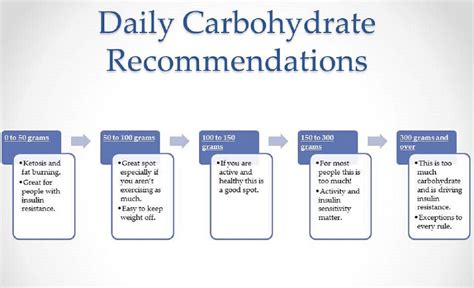
The amount of carbohydrates an individual should consume daily depends on various factors, including age, sex, weight, height, and activity level. Generally, the recommended daily intake of carbohydrates is 45-65% of total daily calories. For example:
- Sedentary women: 130-150 grams of carbohydrates per day
- Sedentary men: 150-200 grams of carbohydrates per day
- Active women: 200-250 grams of carbohydrates per day
- Active men: 250-300 grams of carbohydrates per day
Carbohydrate Quality and Glycemic Index
The quality of carbohydrates is just as important as the quantity. Whole, unprocessed carbohydrate sources tend to be rich in fiber, vitamins, and minerals, and have a lower glycemic index (GI) compared to refined or processed sources. The GI is a measure of how quickly a food raises blood sugar levels. Foods with a high GI, such as white bread and sugary snacks, can cause a rapid increase in blood sugar levels, while foods with a low GI, such as whole grains and legumes, can provide a more sustained release of energy.Carbohydrate-Rich Foods and Chronic Diseases
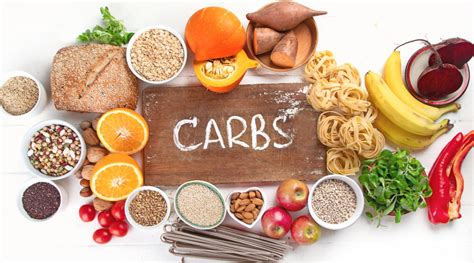
A diet rich in whole, unprocessed carbohydrate sources can help reduce the risk of chronic diseases, such as:
- Heart disease: Whole grains, fruits, and vegetables can help lower cholesterol levels and blood pressure.
- Diabetes: Complex carbohydrates can help regulate blood sugar levels and improve insulin sensitivity.
- Certain types of cancer: A diet rich in fruits, vegetables, and whole grains can help reduce the risk of certain types of cancer, such as colon, breast, and prostate cancer.
Carbohydrate Food List for Athletes
Athletes and individuals who engage in regular physical activity require a diet rich in carbohydrates to support energy production and recovery. Some examples of carbohydrate-rich foods for athletes include: * Bananas: 1 medium = 30 grams of carbohydrates * Energy bars: 1 bar = 20-30 grams of carbohydrates * Sports drinks: 1 cup = 20-30 grams of carbohydrates * Whole grain bread: 1 slice = 15 grams of carbohydratesCarbohydrate Food List for Weight Loss

A diet rich in whole, unprocessed carbohydrate sources can help support healthy weight loss. Some examples of carbohydrate-rich foods for weight loss include:
- Leafy greens: 1 cup cooked = 5 grams of carbohydrates
- Broccoli: 1 cup cooked = 10 grams of carbohydrates
- Sweet potatoes: 1 medium = 40 grams of carbohydrates
- Whole grain pasta: 1 cup cooked = 40 grams of carbohydrates
Carbohydrate Food List for Diabetics
Individuals with diabetes require a diet that is rich in complex carbohydrates and low in added sugars. Some examples of carbohydrate-rich foods for diabetics include: * Whole grains: brown rice, quinoa, whole wheat bread * Fruits: berries, citrus fruits, apples * Vegetables: leafy greens, broccoli, carrots * Legumes: lentils, chickpeas, black beansWhat are the main sources of carbohydrates?
+Carbohydrates are found in a wide range of foods, including grains, fruits, vegetables, legumes, and dairy products.
What is the recommended daily intake of carbohydrates?
+The recommended daily intake of carbohydrates is 45-65% of total daily calories, which translates to 200-300 grams of carbohydrates per day for most adults.
What are the benefits of a diet rich in whole, unprocessed carbohydrate sources?
+A diet rich in whole, unprocessed carbohydrate sources can help support healthy weight management, improve blood sugar control, and reduce the risk of chronic diseases, such as heart disease, diabetes, and certain types of cancer.
What are some examples of low-carbohydrate foods?
+Examples of low-carbohydrate foods include meat, poultry, eggs, tofu, and vegetables, such as leafy greens, broccoli, and bell peppers.
What is the glycemic index and how does it affect blood sugar levels?
+The glycemic index is a measure of how quickly a food raises blood sugar levels. Foods with a high GI, such as white bread and sugary snacks, can cause a rapid increase in blood sugar levels, while foods with a low GI, such as whole grains and legumes, can provide a more sustained release of energy.
In conclusion, carbohydrates are an essential part of a balanced diet, providing energy, fiber, and essential vitamins and minerals. A diet rich in whole, unprocessed carbohydrate sources can help support healthy weight management, improve blood sugar control, and reduce the risk of chronic diseases. By understanding the different types of carbohydrates, their benefits, and how to incorporate them into a healthy diet, individuals can make informed choices and take control of their overall health and well-being. We invite you to share your thoughts and experiences with carbohydrate-rich foods, and to explore our website for more information on nutrition and healthy living.
